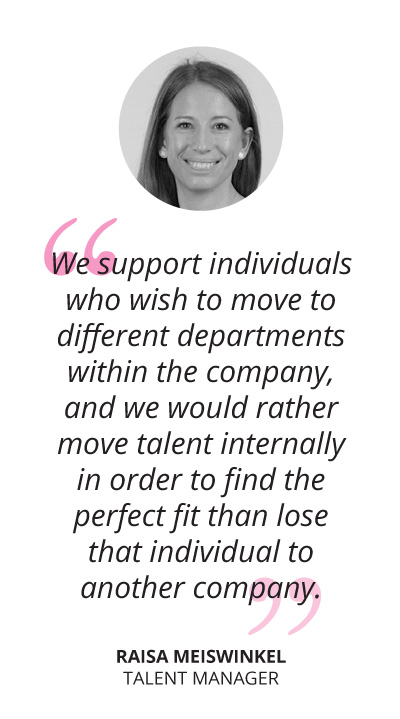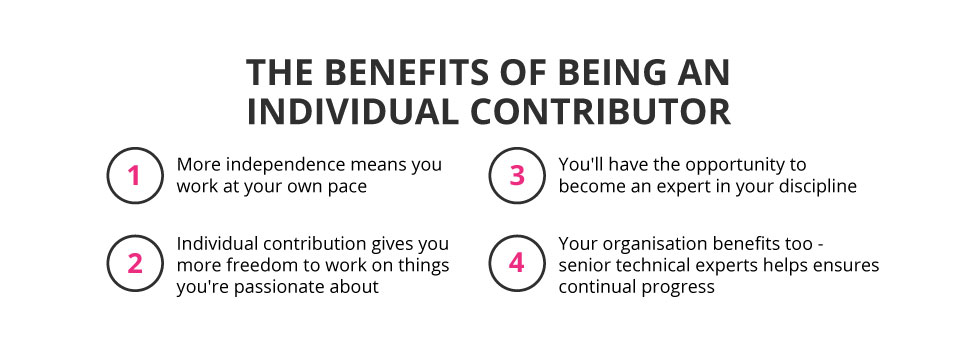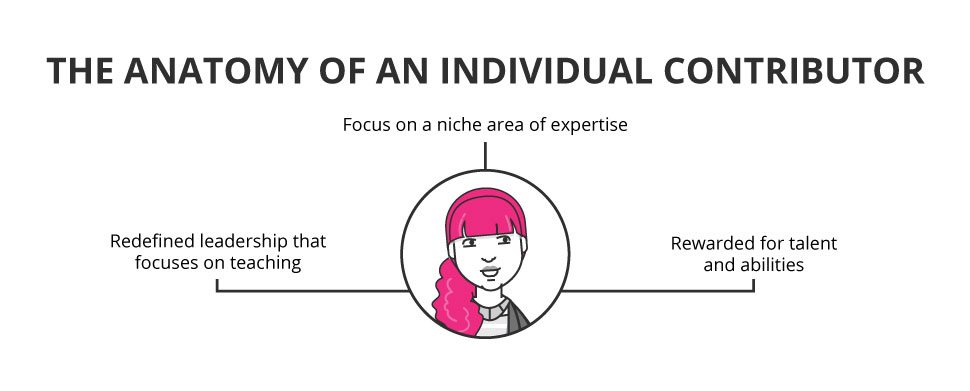Individual Contribution: A New Look at Career Path Planning

Employee engagement is a hot topic at the moment, and it’s not hard to understand why. 85% of employees are not engaged or are actively disengaged at work, resulting in approximately $7 trillion in lost productivity.1 Employee engagement is critical as it’s directly linked to business outcomes.2 One of GetSmarter’s Talent Managers, Raisa Meiswinkel, explains the ways in which career path planning, career succession, and change management all work towards facilitating positive employee engagement.
The factors working against employee engagement are vast, and a great portion of them fall under management issues. For years, the professional landscape has presented the same, conventional career path to the workforce: work hard, improve your skills, get promoted and become a manager.
But what if you don’t want to move into a people-management role? Gallup has found that only one in ten managers currently in the role exhibit all the natural talents of a good manager.3
And with management contributing to 70% of the variations in employee engagement4, bad management could be the downfall of an organisation.
Employee Engagement Strategies
Raisa highlights the fact that within any organisation lies an inherent need for large-scale change management. Clear communication and regular discussions surrounding ways in which an organisation plans on moving forward is at the heart of this. Adaptability towards structural changes is a key asset Hiring Managers seek when considering new employees.
When it comes to career path planning and succession, retaining talent remains a top priority for Raisa. Millennials and GenZs are notorious for moving from one company to another faster than any previous generations, and 26% of Millennials surveyed rated employee satisfaction as the most important value in supporting a business’s long-term success. This presents a unique and interesting challenge for Talent departments across the board.5
“We support individuals who wish to move to different departments within the company, and we would rather move talent internally in order to find the perfect fit than lose that individual to another company.” In addition to this, Raisa mentions it’s a key area of focus to ensure managers regularly sit down with employees and roadmap their career plan to ensure there is a line of sight and a way of getting there.

Within GetSmarter, Chief of Talent, Thelmé Janse van Rensburg, and Chief of Education, Amy Johnson are prime examples of ways in which employees have started out in junior positions, and have moved their way up to the C-Suite.
However, if you’re concerned about having little to no option but to move into a people-management role as your career progresses, there is another solution. A new career path – one defined by specialisation rather than negotiation. Becoming an individual contributor is one way that the world of work is seeking to accommodate everyone’s abilities – including yours.
What is an individual contributor?
Companies such as Google and Hubspot have opened their arms to this movement of non-management. Employees are presented two career paths to consider: the first follows the same trajectory as the traditional approach to people management while the other focuses on transforming you into a guru in your respective discipline and becoming an individual contributor.
It serves you if you’re an ambitious professional who wants to become an authority in your field but would prefer not to rely on the work of others to achieve results.
Individual contribution speaks to the sentiment that just because you’re an excellent programmer, you might not be an excellent programming line manager. It moves away from the idea that you should be promoted because you “deserve” it due to time and experience and looks at your raw talent in your role within the organisation.
With this said, it’s not a move way from leadership.
Leadership is simply redefined for the individual contributor: what can you teach others to help them reach their full potential in the same role and how can you mentor them to become better than they were the day before?
It comes down to finding your niche, focusing your efforts on improving that, and making meaningful contributions to your organisation in your capacity as an individual contributor.
The benefits of the individual contributor career path
Having a defined career path for individual contributors can benefit you if you identify with this form of progress but it also adds benefit to the organisation. Here are the top benefits of developing yourself as an individual contributor, rather than as a people manager:
- Independence: as an individual contributor, you’re less likely to be held back by the progress of others. As you move up the career path in terms of seniority, you’ll be given more responsibility to identify problems, create projects and execute plans – all in your time and at your own pace
- Freedom: individual contributors that are able to prove their value to a company will be given license to work on the things that they think are important. If you identify as an individual contributor, you’ll be expected to lead challenging projects that speak to your strengths and your stimulation
- Increased expertise: nothing is more attractive to prospective employees than exceptionally skilled individuals. Being an individual contributor means you’ll have more time for personal development, giving you the opportunity to focus on becoming a thought leader in your respective field
- Organisational success: it costs an organisation approximately 1.5 to 2 times more than an individual’s annual salary to replace them.6 Every time a skilled technical expert is promoted to management, their time for contributing real work is diminished as they make room for people. Fostering the individual contribution career path means that expertise is cultivated and celebrated within the organisation

Earn a new skill and choose your direction.
Browse over 60 online short courses from the world’s leading universities.
